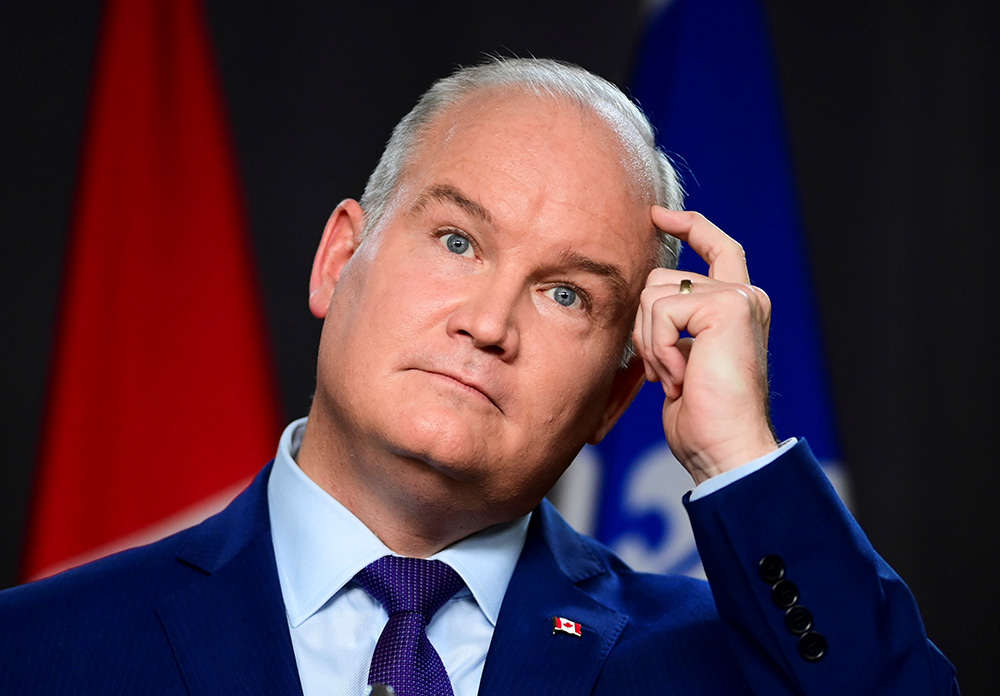The Liberals remember a principle at a convenient time
/s3.amazonaws.com/arc-authors/tgam/99022062-d97c-4f00-94ae-4f937146ad9f.png)
CAMPBELL CLARKPUBLISHED 1 DAY AGOUPDATED 1 DAY AGOFOR SUBSCRIBERS131 COMMENTSSHARE TEXT SIZEBOOKMARK00:00Voice1x
/cloudfront-us-east-1.images.arcpublishing.com/tgam/L5A3EP2AURIFPC6GPXVBBDVPK4.jpg)
It’s not surprising that Justin Trudeau’s government is moving to stop opposition MPs from calling Liberal political aides to testify before parliamentary committees. But it is still shocking to see them do it in a wholehearted defence of a principle, ministerial responsibility, that they have neglected so much.
The battle over aides comes up in minority Parliaments because opposition parties can use their collective majority in committees to summon political advisers and grill them. For the government, that can be distracting. Or embarrassing. Or worse.
The Commons ethics committee wants to hear from Prime Minister’s Office advisers Rick Theis and Ben Chin about the WE Charity affair, as well as an adviser to former finance minister Bill Morneau, Amitpal Singh. The defence committee is trying to call Zita Astravas, chief of staff to Defence Minister Harjit Sajjan, about the handling of sexual misconduct allegations against the military’s former chief.
So Liberal House Leader Pablo Rodriguez declared in the Commons last Thursday that the government now tell its staffers to refuse to testify. And he showed up at the Commons ethics committee in place of Mr. Theis, insisting that as a minister he would answer instead.
Mr. Rodriguez more or less admitted the Liberals have had enough of the WE hearings, but he wheeled out that important principle of Canadian government, ministerial responsibility, to argue there is Something Greater at Stake.
This is the part where Mr. Rodriguez should have started to blush.
For starters, as Mr. Rodriguez recalled, Stephen Harper’s Conservatives made the same claims in 2010 to try to prevent staffers from being called to testify, and also sent ministers in place of the summoned aides. But what he didn’t mention is that at the time, the Liberals accused the Conservatives of being undemocratic and hypocritical.
This time, there is plenty of hypocrisy to go around.
Ministerial responsibility is an important principle of Canadian democracy. And it is nice that the Liberals have rediscovered it, since they neglected it for so long.
It is not, as some Liberal MPs at Monday’s hearing seemed to think, merely a principle that ministers speak to Parliament and staffers don’t.
It is the doctrine that ministers are responsible to Parliament. For individual ministers, that means they are not just responsible for their political staff, but also for all the civil servants in their department and for their entire portfolio. They answer to Parliament for it. It is an accountability mechanism.
And it was thrown out pretty quickly in the cases the committees are pursuing.
What happened when the Liberal government was accused of picking an organization close to Mr. Trudeau, WE Charity, to administer a $900-million student volunteer program? Youth Minister Bardish Chagger said it wasn’t her – civil servants did it. The PM said it wasn’t his idea to use WE – in fact, he said he pushed back when civil servants recommended it.
The government was happy to see Rachel Wernick, an assistant deputy minister of Employment and Social Development Canada, testify she was the one who decided WE Charity should administer the program.
But by then, there was no ministerial responsibility at stake. It had been discarded to protect politicians. The question the committee was chasing was whether the politicians were more involved in choosing WE than they claimed.
And in the case of Mr. Sajjan’s handling of sexual misconduct in the military, it’s probably not wise for the government to use the term ministerial responsibility at all.
The defence committee wants to ask his chief aide, Ms. Astravas, about the handling of an allegation of sexual misconduct against Jonathan Vance, the military’s former top officer. The defence department’s ombudsman at the time, Gary Walbourne, said he brought a confidential allegation to Mr. Sajjan, and offered to show him evidence, but the minister refused to look.
How did Mr. Sajjan respond? He said Mr. Walbourne, who reports to him, should have done more. He said he passed it on the “appropriate authorities” at the Privy Council Office – the central civil service department which reports to the PM. Who was responsible? Not ministers.
It would be nice if ministers took responsibility for their portfolio. It would be nice if opposition MPs didn’t overuse their nearly unfettered power to summon witnesses. In the end, these minority-Parliament battles are nearly always ended by an election. In the meantime, ministerial responsibility is a principle that the Liberals have suddenly rediscovered at a convenient time.PLAY VIDEO2:58The Conservatives are seeking to force senior Liberal staff, or the prime minister himself, to testify before committees. But the Liberals say the Tories are abusing their powers in the House of Commons to make petty partisan attacks against civil servants and staffers.





/s3.amazonaws.com/arc-authors/tgam/1276b5db-98f5-461f-8856-f19f81bdbbbc.png)
/cloudfront-us-east-1.images.arcpublishing.com/tgam/XD343Q37HFOGFAH5INPMQMTJOA.jpg)




